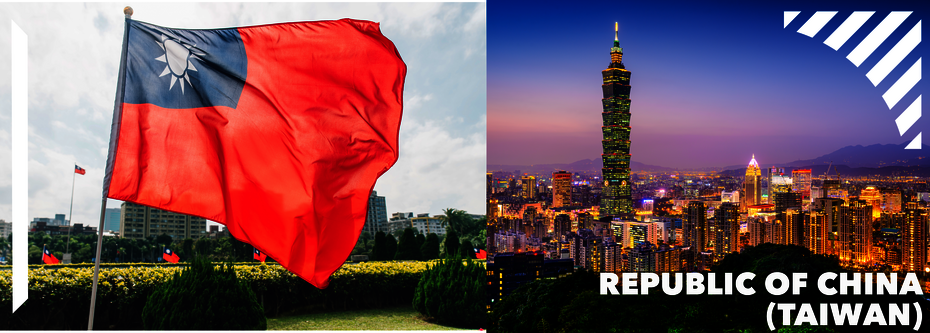Commitment to the well-being of the region.
The Republic of China (Taiwan) joined CABEI in 1992 and is one of the Bank's first non-regional members; its incorporation enabled the Bank to issue and place its first bonds on the international market. At the close of 2021, it is the non-regional member with the highest shareholding (11.4%) with a subscribed capital of USD776.3 million and contributions amounting to USD133.6 million.
In the coordination of development projects, the Republic of China (Taiwan) cooperation for the region focuses on key areas for poverty reduction, such as food security, education, agriculture, Micro, small and medium-sized enterprises, agribusiness, coffee producing sector affected by rust, export promotion and forestry and industrial development.
As a relevant fact, in 2020, thanks to the alliance with its non-regional partner country, CABEI made it's 19th issue in the Taiwan capital market, historically totaling US$ 2.3 billion.
In 2021, CABEI opened its representative office in the Republic of China (Taiwan) located at the Taipei 101 building.
With the support of CABEI and the Republic of China (Taiwan), Honduras will conduct feasibility studies for the construction of a floating photovoltaic solar power plant on the "El Cajón" dam.

These studies are expected to support Honduras in developing sustainable investments to address current energy and climate challenges.
Tegucigalpa, October 20, 2022.- With the objective of diversifying Honduras' energy matrix with clean energy alternatives and ensuring a continuous supply to the population, the Central American Bank for Economic Integration (CABEI) formalized a non-reimbursable cooperation agreement for US$550,000 with the Government of Honduras to carry out feasibility and design studies for a floating solar photovoltaic plant at the Francisco Morazán Hydroelectric Plant, known as "El Cajón".
The funds to finance this technical assistance come from the Taiwan-CABEI Partnership Trust Fund (TCPT), signed between CABEI and Taiwan on November 18, 2021. With this cooperation, the Empresa Nacional de Energía Eléctrica (ENEE) will conduct the technical, financial and economic feasibility studies, as well as the detailed design of the floating solar photovoltaic power plant and an environmental and social impact assessment of the project, as well as a capacity building component.
"This initiative is in line with CABEI's efforts, as Honduras' main financial arm, to strengthen the energy sector of our founding partner country, which has a great capacity to diversify its energy sources and increasingly promote renewable generation, benefiting more than nine million Hondurans with continuous service and bill savings," said CABEI Executive President Dr. Dante Mossi.
The agreement was signed by CABEI's Executive President, Dr. Dante Mossi and the Secretary of State in the Office of Finance of the Republic of Honduras, Mrs. Rixi Moncada Godoy. The signing was accompanied by the Ambassador of the Republic of China (Taiwan) to Honduras, Mrs. Vivia Chang.
The collaboration agreent also provides for capacity building at the local level, where specialists from Taiwan, a leading country in clean energy, will transfer knowledge to strengthen the ENEE.em
CABEI promotes sustainable initiatives among its member countries to improve competitiveness and other projects that have made it possible to promote renewable energy, energy diversification and environmental conservation, in line with the Environmental and Social Sustainability Transversal Axis of its 2020-2024 Institutional Strategy, thus supporting the fulfillment of the Sustainable Development Goals, specifically SDG 7, Ensure access to affordable, safe, sustainable and modern energy for all.


